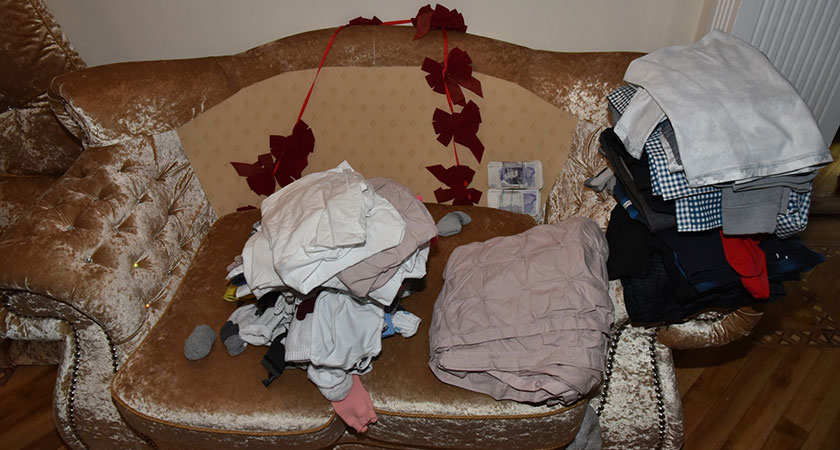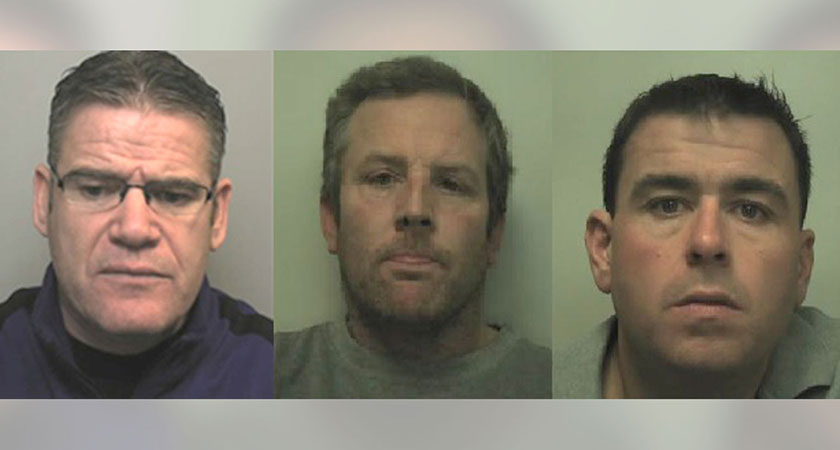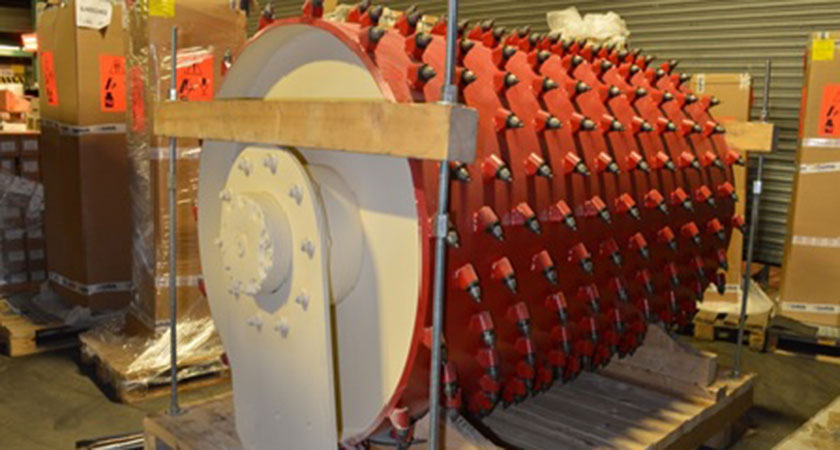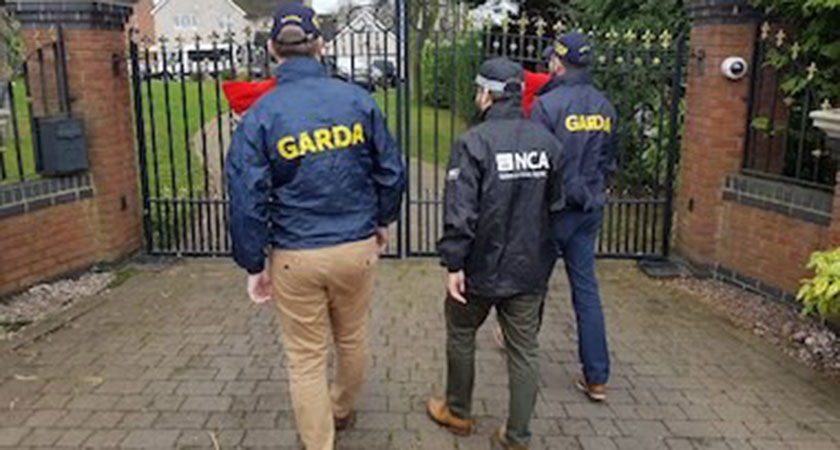THREE Irishmen who 'considered themselves to be untouchable' have been jailed for more than 60 years after admitting to conspiring to import £30m of class A and B drugs into Britain.
Thomas 'Bomber' Kavanagh, 54, who the National Crime Agency (NCA) described as the 'main man' in Britain for Ireland's Kinahan organised crime group, was sentenced to 21 years in prison at Ipswich Crown Court on March 28.
Dublin-born brothers-in-law Gary Vickery, 39, and Daniel Canning, 43, were sentenced to 20 years and 19-and-a-half years respectively.
"Kavanagh was a high-ranking member of the Kinahan cartel, an organised crime group synonymous with acts of violence," said NCA Deputy Director of Investigations Matt Horne.
"He was their main man in the UK.
"Through their criminal connections overseas, his organisation was able to organise, import and distribute drugs worth many millions of pounds.
"These men considered themselves to be untouchable, but we were able to systematically dismantle the group and prove that this was not the case."
Fortified mansion
Kavanagh lived with his family in a fortified mansion, complete with reinforced doors and bulletproof glass, in Tamworth, Staffordshire, from where he ran his criminal empire.
When the NCA raided the property in January 2019, officers found weapons including an illegal stun gun, for which he was eventually given a three-year jail sentence.
Officers also seized cash worth around £35,000 in various denominations including sterling, euros and Emirati dirhams, which had been stuffed into drawers, bags and down the back of sofa cushions.
 £35,000 in cash was found hidden in Kavanagh's mansion, including down the back of sofa cushions (Image: NCA)
£35,000 in cash was found hidden in Kavanagh's mansion, including down the back of sofa cushions (Image: NCA)The raid was part of a wider investigation to dismantle his drugs empire, with NCA officers also targeting Vickery and Canning.
NCA investigators were able to evidence their involvement in large-scale drug shipments worth around £30m at British street value, as well as movements of cash and firearms.
Kavanagh, Canning and Vickery all admitted conspiring to import class A and B drugs and money laundering, while Canning also admitted possessing a firearm and ammunition.
Drugs hidden in machinery
Vickery, Canning and a third Irishman named Martin Byrne were all arrested by the NCA in October 2017 following the seizure of 15kg of cocaine and more than 220kg of cannabis, found inside a six-tonne industrial tarmac removal machine at Dover.
The machine had a tracking device fitted, which led NCA officers to raid industrial units in Wolverhampton and Wednesbury in England's West Midlands.
At Wednesbury, investigators found the shell of an industrial transformer, which still had traces of cocaine inside, as well as a black holdall containing a handgun and ammunition.
Byrne's DNA was found on the gun, and his fingerprints on the bag it was in.
Investigators also found boxes full of tracking devices, identical to the one found on the machine seized at Dover.
'The Gaffer'
Officers raided Vickery's rented property in Boundary Lane, Solihull, where they recovered five 25kg barrels of boric acid powder — often used as a cocaine cutting agent — a cash counting machine, £43,000 and €200,000 in cash.
Small amounts of cash and further phones and encrypted communications devices were found at Canning's home in Dickens Heath.
Information on those devices showed Kavanagh was heading up the criminal enterprise, with messages between the group referring to him as 'the Gaffer'.
He was also in contact with criminal contacts in Europe to orchestrate shipments.
Kavanagh was arrested at Birmingham Airport as he returned to Britain on January 12, 2019.
Communications between the group also provided evidence that they had been involved in at least four more drug importations prior to the Dover seizure in October 2017, bringing the estimated street value of cocaine importations by the group up to £23.4m.
Cannabis importations over the same period are estimated to have been worth around £6.4m.
In June 2020, the trio pleaded guilty to the offences they were charged with, however legal arguments, the Covid-19 pandemic and Vickery's extradition from Lanzarote delayed their eventual sentencing.
Byrne died of cancer in August 2018 before he could be charged.
'Not the end'
"This investigation involved co-operation with An Garda Síochána in Ireland," added Horne.
“We are determined to work together to target criminal networks impacting communities on both sides of the Irish sea.
"Our financial investigation into Kavanagh and his associates is ongoing, with a view to stripping them of any assets they have acquired through their criminality.
"This is not the end of our activity targeting this group."
Assistant Commissioner John O'Driscoll, who heads Organised and Serious Crime within An Garda Síochána, said they would continue to work with British authorities to tackle criminal gangs.
"An Garda Síochána has forged a very powerful working relationship with the UK's National Crime Agency, which is assisting in ensuring that communities in the UK and Ireland are better protected from organised crime," he said.




